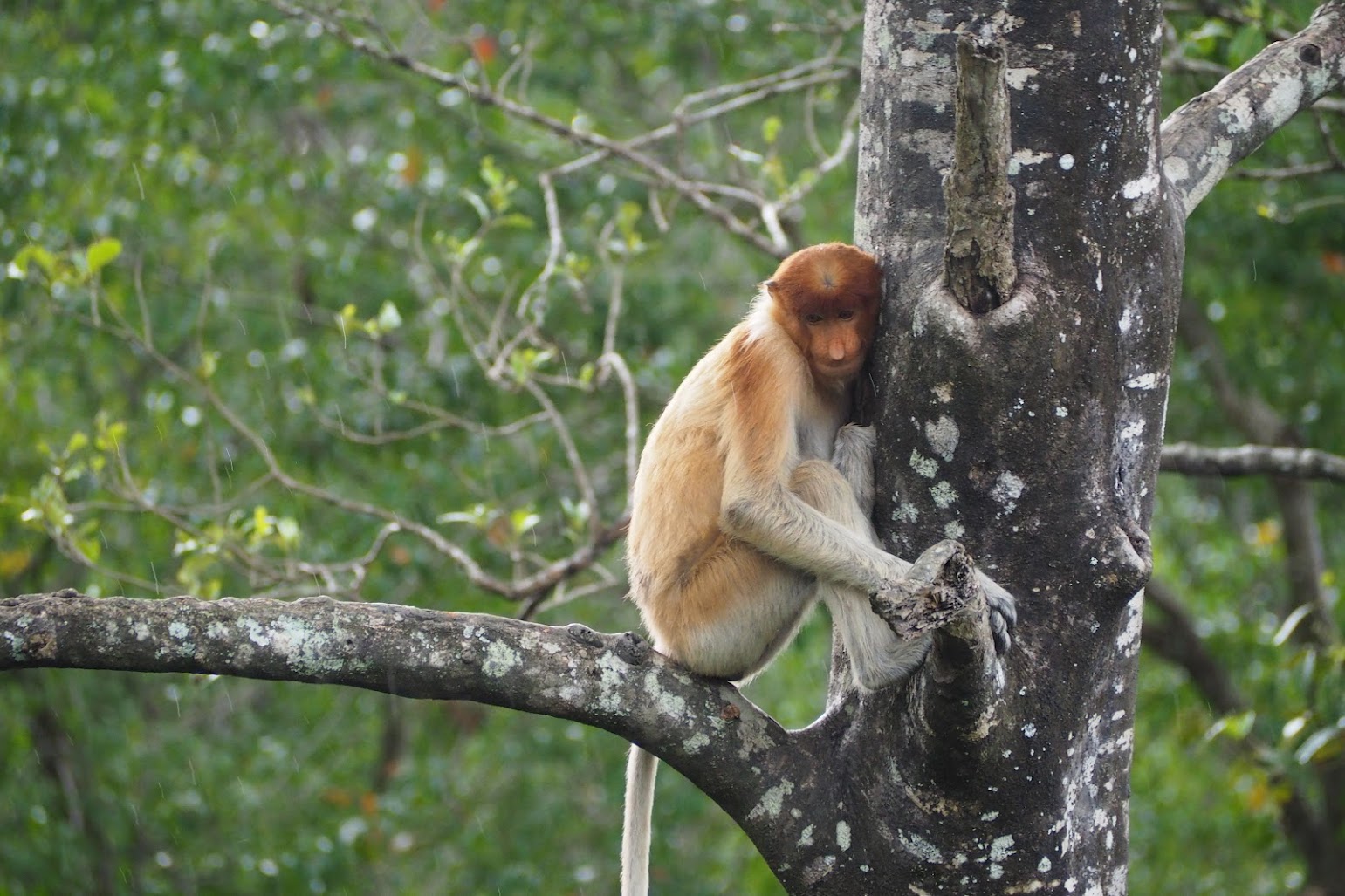There are few places on Earth where the natural world still feels truly wild, where orang-utans swing freely between branches and pygmy elephants trace invisible paths carved by generations before them. Borneo is one of those places.
It is a land of misty rivers, dense rainforest, haunting calls from unseen treetop dwellers and muddy boots that carry the weight of both awe and heartbreak. My time in Malaysian Borneo was filled with moments of breathless wonder, close encounters with wildlife that felt like privileges rather than entitlements. But as extraordinary as it was, the experience also sparked a deep, lingering discomfort: a tension between the beauty of the natural world and the reality of its fragility.
Travelling through Sabah with GAdventures, we spent hours on the road between towns and reserves, watching the world roll by. But unlike the varied, shifting landscapes you might expect in such a biodiverse region, one sight dominated the horizon: palm oil plantations. Endless rows of identical trees, planted with military precision, stretching as far as the eye could see. The monotony was almost surreal.
Once upon a time, these flat, ordered fields were rainforest with rich, chaotic ecosystems where hornbills nested and sun bears wandered. Now, they stand as quiet monuments to a booming industry that feeds global demand for everything from snacks to soap. Palm oil is efficient and profitable. But its cost to the environment is staggering.
This isn’t just a Bornean problem. It’s a global one. And more than that, it’s a human one.
Amid the backdrop of deforestation and industrial development, the moments we spent in nature felt even more precious. On the Kinabatangan River, we were lucky enough to see nearly every iconic animal associated with Borneo.
We watched orang-utans as they foraged and played in the trees, so human in their movements it was almost eerie. Their presence, both joyful and melancholic, served as a reminder of just how endangered they are. Habitat loss and fragmentation are pushing them closer to extinction every year.
We saw proboscis monkeys, with their pot bellies and cartoonish noses, gathered in groups, leaping between branches with surprising grace. Crocodiles glided silently through the river, barely rippling the surface. Brightly coloured hornbills soared overhead. And then came the rarest sight of all: a pygmy elephant migration.
A family of elephants crossed the river in front of us: adults, juveniles and babies. It was one of those moments where time seemed to pause. We watched in silence, humbled by the ancient rhythm unfolding before our eyes. It was the kind of experience you don’t plan. It finds you, if you’re lucky.
Later, on the coast, we joined a turtle conservation team to assist with a hatchling release. By the light of the moon, we carried tiny turtles across the sand, setting them gently down and watching as they instinctively scurried toward the waves. It was beautiful, but also sobering. Fewer than one in a thousand will survive to adulthood. And yet we still try. Still hope. Still act.
It’s impossible to witness Borneo’s ecological wonder without confronting the vast complexities that surround it. One of the hardest truths to swallow is this: much of the world’s remaining biodiversity exists in countries still working toward economic stability. And yet, these nations are now being asked to protect their natural resources at all costs, costs that wealthier countries never paid when they were in similar stages of development.
The Western world built its prosperity on deforestation, industrialisation and extraction. We cleared forests for farmland, hunted animals to the brink and spewed carbon into the atmosphere for generations. Now, with the benefit of hindsight and economic security, we call on developing countries to “do better”: to conserve, to regulate, to preserve what remains.
It’s a noble ideal, but it rings hollow when not backed by real support, equitable trade and shared responsibility.
Why should Borneo bear the brunt of climate guilt while corporations profit from palm oil? Why should communities living alongside elephants and orang-utans be expected to shoulder the burden of conservation with little economic incentive?
These aren’t rhetorical questions. They’re ethical ones. And they demand better answers than we’ve been giving.
Spending time in Borneo taught me that conservation isn’t just about wildlife. It’s about people. It’s about fairness. And it’s about choices: everyday ones that ripple out further than we often realise.
It’s easy to feel helpless in the face of environmental crisis. But there are actions we can take. We can educate ourselves about where our food, cosmetics and household products come from. We can support sustainable certifications (while holding those certifications to account). We can advocate for policies that protect both nature and the people who live closest to it.
Most importantly, we can remember that places like Borneo are more than travel destinations. They’re vital ecosystems that support life on this planet not just exotic animals, but oxygen, climate regulation and biodiversity we all rely on.
After Borneo, I flew onto Kuala Lumpur, a city where development and nature coexist in strange, striking contrast. Towering skyscrapers, sprawling malls and buzzing night markets sit beside ancient temples and lush city parks. I also visited Putrajaya, Malaysia’s ambitious and modern administrative capital, with its elegant mosques and manicured public spaces.
Travel can be beautiful. It can also be uncomfortable. And sometimes, the best journeys are the ones that challenge your assumptions.
Borneo was not just an adventure. It was a call to awareness. A reminder that the planet is alive, complex and breathtaking… and that it is in danger. But it’s not too late. There is still time to act, to change, to protect what remains.
If you ever get the chance to go to Borneo. Let the forest speak to you. Let the elephants cross your path. Let the turtles teach you patience and hope. And when you return home, don’t forget them.

Leave a Reply